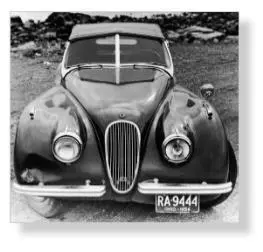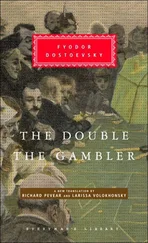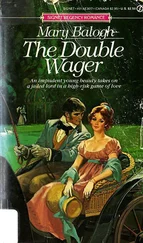
W HAT DID THE neighbors think? Sometimes Laurel tried to imagine. Did the Buchanans care? First, in 1922, there was that nastiness near the ash heaps, the hit-and-run car accident, followed by the investigation and the inquest. There had to have been newspaper articles noting that Daisy was in the passenger seat of that bootlegger’s car when he slammed into Myrtle Wilson and left her to die in the street, her left breast literally ripped off by the front of the vehicle. Surely, the neighbors must have pondered, why was she with him? Most, Laurel presumed, came to the most likely of conclusions. Then, a few years later, there were the allegations that it was actually Daisy who had been behind the wheel that steamy dusk. Not Jay. The neighbors must have discussed those stories, too.
Likewise, Laurel was sure that they whispered about Tom Buchanan’s extramarital dalliances. The girl in Santa Barbara (a chambermaid), the woman in Chicago. And those were merely the affairs that occurred in the first three years of Tom and Daisy’s marriage. Even Pamela Marshfield had wondered that morning over tea why her parents had never moved.
And yet, somehow, the marriage had endured.
Saturday night, Laurel stared at the snapshot of Pamela and Bobbie as children beside the tan coupé, the portico towering high above their small, entitled shoulders. For the first time, it dawned on her that Bobbie might have been a reconciliation baby. A child conceived and birthed to show the world that the Buchanans’ marriage was fine. Rock solid. And the neighbors needn’t waste any energy at all wondering whether it could or it should be saved.
THE CHURCH SAT ATOP a small ridge perhaps a mile and a quarter beyond the village of Bartlett. Laurel stopped at a gas station on the main street to ask for directions, and found it easily within minutes. It was a classic New England church with a pair of tall, stately sugar maples out front, their colors just starting their transformation into what soon would become a phantasmagoric rainbow of reds. It had a modest, unadorned steeple, and clapboard the color of bone. The stained glass was more ornate, with most of the windows depicting crowns and scepters and crucifixes. The deacons, an elderly man and woman, welcomed her warmly when she arrived: They smelled fresh young blood.
She sat in the back, both because she knew no one and because her family had never been big churchgoers. She was, she realized, slightly overdressed in her lone white blouse and the black broomstick skirt she had found in the back of her closet, since everyone else who was there who was even close to her age was wearing blue jeans or khakis or (in the case of a couple of girls who looked to be seniors in high school) the sort of retro-looking miniskirts that Laurel herself often picked up at the vintage clothing stores near the Burlington waterfront. She felt badly that she was here under what had to be considered a false pretense, guilt that was only exacerbated when the family in the pew before her-a salt-of-the-earth farmer and his wife, a schoolteacher, and their four unkempt but well-behaved children between the ages of, she guessed, five and fifteen-greeted her with unnecessary but completely sincere handshakes and embraces. Even the littlest girl, a shy thing with a sticky palm, insisted on pumping her arm wildly during the moment in the service when the pastor asked everyone to say hello to the parishioners around them.
She restrained herself from asking them how well they had known Marcus Gregory Reese or a man named Bobbie Crocker. She knew she should wait until the coffee hour that, according to the program, would immediately follow the benediction.
When the service was over, the schoolteacher, a woman named Nancy, asked her how long she had lived in Vermont. The woman was simultaneously handing quarters to two of her children to bring to their Sunday school classes, while gathering up their crayons and coloring books and sweaters. The older kids had shot from the sanctuary to their classrooms the moment the service had ended.
“Eight years,” Laurel answered. “And you?”
Nancy kissed her remaining children on the tops of their heads and then watched as her husband brought them across the large, suddenly noisy room to their teachers.
“My whole life. I was born here. What did you say your name was?”
“ Laurel.”
“Well, it’s nice to meet you. Did I hear you right earlier: You live up in Burlington?” “I do.”
The teacher stiffened just the tiniest bit, as if she sensed that Laurel wasn’t here entirely because she was shopping for a church to call home.
“What brings you to Bartlett? It was probably a pleasant drive this morning. But it won’t be come winter.”
Laurel smiled in a way that she hoped was at once ingratiating and honest. “I want to learn about a member of this congregation who recently died-and a friend of his.”
The woman nodded, and then rested a finger-the nail a near-perfect oval, the white at the tip a crisp sickle moon-on her chin. “And that would be?”
“Marcus Gregory Reese. He-”
“Oh, I knew Reese. That’s what he went by. Reese.”
“Can I talk to you about him?”
“Sure, but I didn’t know him well. I mean, I rarely saw him other than Sundays. A couple of Thursday mornings in the summer, maybe, when the seniors would get together here at the church to play games. Sometimes I’d join them-you know, add a little youth to the mix? Pour the juice, brew the coffee? And I might have run into him once or twice at the grocery store. But that was really about it. Which of his friends do you want to meet? Perhaps I can introduce you.”
“That’s the problem. He died, too.”
“I see.”
“Bobbie Crocker. Ring a bell?”
“Huh, Bobbie died? I’m really sorry. I’d wondered what happened to him. He just disappeared off the face of the planet, didn’t he? When did he die? And how?”
“A couple weeks ago. A stroke.”
“They sat over there,” the schoolteacher said, extending one of her long fingers with the lovely nails in the direction of the pews on the other side of the sanctuary. “Bobbie and Reese. I think they might have lived together, but I’m not sure. Why are you interested in them? Are you related to one of them?”
“No.”
“Then why? May I ask? I don’t want to pry.”
Laurel thought for a moment before answering because there were just so many reasons. There was her curiosity about how Bobbie had gone from the Buchanan estate in East Egg to a single room at the Hotel New England. There was her sense that the two of them were connected since he had grown up in a house across the cove from the very club where she had spent a sizable chunk of her childhood, and then, perhaps, been photographing up in Underhill on that grim, tree-canopied dirt road on the day she had nearly been killed. There was her respect for his talents as a photographer and her desire to annotate his work properly, both for a show and for posterity. And, pure and simple, there were the mysteries: Why had his family cut him off years ago, and why was his sister insisting upon the fiction that they were unrelated today? Why was she claiming that her brother had been dead for so many decades? It was all too much to explain to this sweet woman in the back of a church on a Sunday morning, however, and so she simply told Nancy what she did for a living and that she was researching some photographs that were found in Bobbie’s apartment after he died. She left it at that.
“Well, if you want to talk to someone who knew them better than I did, try that lady over there. Her name is Jordie.”
Читать дальше













